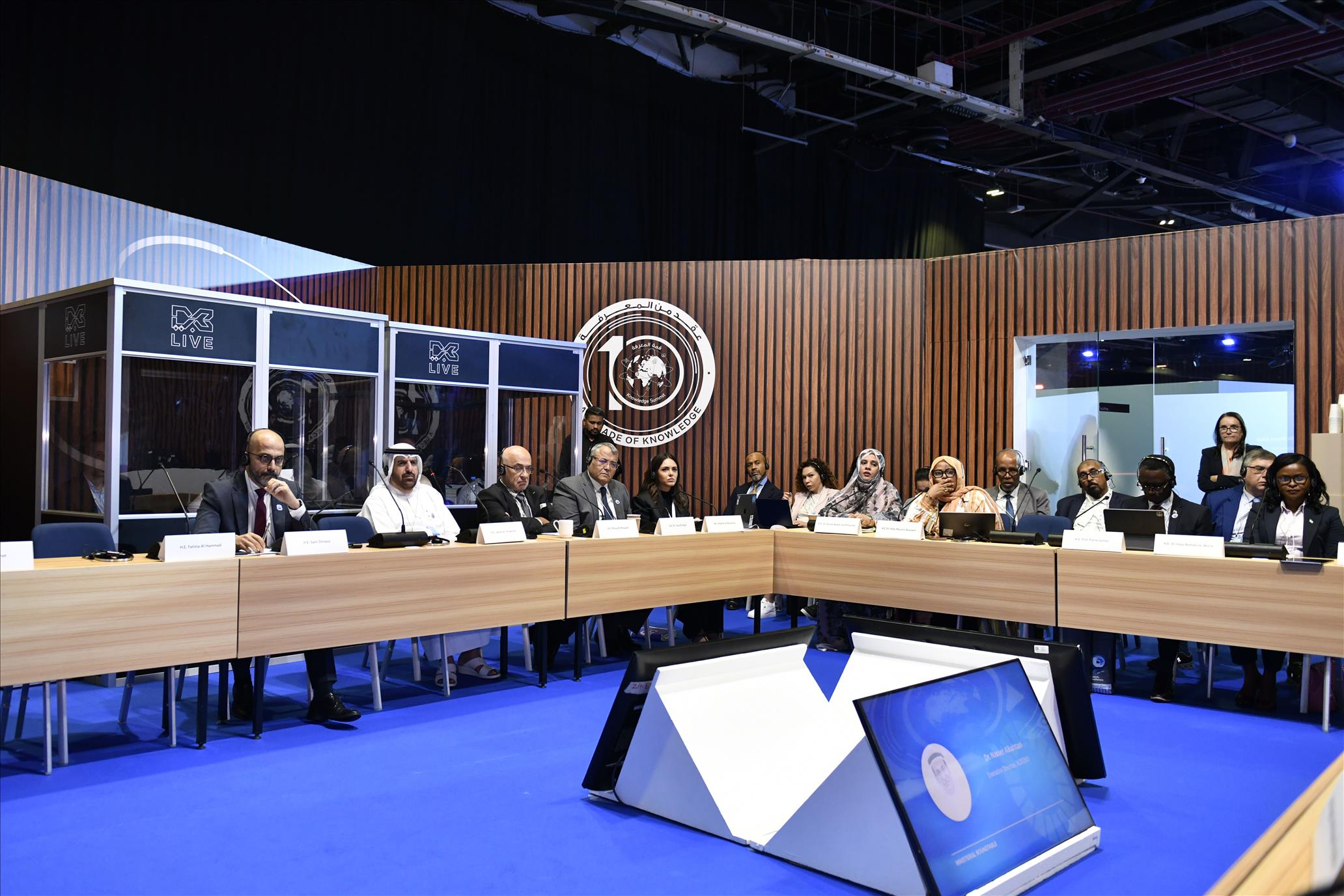
403
Sorry!!
Error! We're sorry, but the page you were looking for doesn't exist.
Experts At Knowledge Summit Call For Stronger Knowledge Policies To Counter Misinformation And Empower Youth
(MENAFN- Mid-East Info) Dubai, UAE, November 2025 – Experts at the Knowledge Summit 2025 in Dubai underscored the urgent need for robust knowledge policies to guide the transition toward knowledge-based economies, warning that weak governance, limited data exchange, and the rise of misinformation are undermining development efforts across many countries.
Speaking during a session on 'Building Knowledge Policies,' panelists from ICESCO and international institutions highlighted the role of youth empowerment, multilingual access to information, and cross-border cooperation as essential pillars for creating future-ready, equitable knowledge systems. H.E. Timur Suleymanov, Aide to the Rais of the Republic of Tatarstan, spoke about the important role of youth in developing and preserving the knowledge of nations. “Empowering youth is a long-term investment. The New generation should embrace values first. This should start from childhood through different tools such as games, movies, social media, and books,” Suleymanov said. “We need youth to be efficient. Engaging youth and children as early as possible to participate in producing knowledge or projects.” Osama Heikal, Head of the Media and Communication sector, ICESCO, warned of the threat of using social media as a tool to spread fake news. He said a study by Reuters showed that 72% of people think that fake news is threatening lives and stability. “With the internet and mobile phones now the primary source of information, fake news has emerged as a major threat, rivalling the dangers posed by conflict and climate change,” Heikal said. “Many people can't tell the difference between fake and real news.” He said media, security, and educational entities should boost awareness among societies about this challenge. “About 60% of the people don't trust the traditional media outlets. The challenge is using AI in creating fake news,” he said. Professor Mohamed Zinelabidine, Head of the Culture Sector, ICESCO, said a knowledge society can't develop without gross domestic product. “We have 31 countries from 54 in ICESCO that don't have knowledge indicators, 13 of them are Arab states. About 41 countries don't have spending on knowledge,” Prof. Zinelabidine said. “The economic contribution of the creative and cultural industries in 43 countries doesn't contribute to their countries' GDP.” H.E. Anar Karimov, Former Minister of Culture, Republic of Azerbaijan, and Head of Partnerships, ICESCO, said partnership can develop countries. “Our aim is to develop partnerships between countries to boost their own knowledge,” Karimov said. “The international partnership is essential for development.” Dr. Ahmed bin Abdullah Al Bunyan, Director of the Center of Translation and Publishing, ICESCO, said knowledge is power when it is exchanged and available in multiple languages. “Knowledge must be available in different languages through open platforms,” Dr. Al Bunyan said. “Having a high-quality translation, open source of publishing, and digital transformation will offer a strong, high-quality knowledge system.”
Speaking during a session on 'Building Knowledge Policies,' panelists from ICESCO and international institutions highlighted the role of youth empowerment, multilingual access to information, and cross-border cooperation as essential pillars for creating future-ready, equitable knowledge systems. H.E. Timur Suleymanov, Aide to the Rais of the Republic of Tatarstan, spoke about the important role of youth in developing and preserving the knowledge of nations. “Empowering youth is a long-term investment. The New generation should embrace values first. This should start from childhood through different tools such as games, movies, social media, and books,” Suleymanov said. “We need youth to be efficient. Engaging youth and children as early as possible to participate in producing knowledge or projects.” Osama Heikal, Head of the Media and Communication sector, ICESCO, warned of the threat of using social media as a tool to spread fake news. He said a study by Reuters showed that 72% of people think that fake news is threatening lives and stability. “With the internet and mobile phones now the primary source of information, fake news has emerged as a major threat, rivalling the dangers posed by conflict and climate change,” Heikal said. “Many people can't tell the difference between fake and real news.” He said media, security, and educational entities should boost awareness among societies about this challenge. “About 60% of the people don't trust the traditional media outlets. The challenge is using AI in creating fake news,” he said. Professor Mohamed Zinelabidine, Head of the Culture Sector, ICESCO, said a knowledge society can't develop without gross domestic product. “We have 31 countries from 54 in ICESCO that don't have knowledge indicators, 13 of them are Arab states. About 41 countries don't have spending on knowledge,” Prof. Zinelabidine said. “The economic contribution of the creative and cultural industries in 43 countries doesn't contribute to their countries' GDP.” H.E. Anar Karimov, Former Minister of Culture, Republic of Azerbaijan, and Head of Partnerships, ICESCO, said partnership can develop countries. “Our aim is to develop partnerships between countries to boost their own knowledge,” Karimov said. “The international partnership is essential for development.” Dr. Ahmed bin Abdullah Al Bunyan, Director of the Center of Translation and Publishing, ICESCO, said knowledge is power when it is exchanged and available in multiple languages. “Knowledge must be available in different languages through open platforms,” Dr. Al Bunyan said. “Having a high-quality translation, open source of publishing, and digital transformation will offer a strong, high-quality knowledge system.”

Legal Disclaimer:
MENAFN provides the
information “as is” without warranty of any kind. We do not accept
any responsibility or liability for the accuracy, content, images,
videos, licenses, completeness, legality, or reliability of the information
contained in this article. If you have any complaints or copyright
issues related to this article, kindly contact the provider above.


















Comments
No comment